

Natural fertilizer turns crops into vigorous growers without degrading the environment. Derived from plant, mineral or animal matter, it gives ornamentals and vegetables a powerful boost.
Discover the top 3 home-made natural fertilizers for the garden!
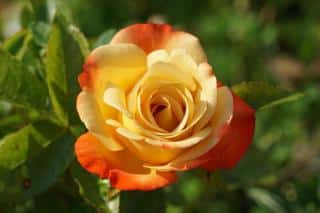 To grow well and produce abundant blooming, massive harvests and resist diseases, plants need sun, water and nutrients. Depending on what a particular species requires, it’s relatively easy to select the right location with more or less sun. It’s also possible to adequately control water, with a hose from time to time or thanks to mulch to cool the soil down. For nutrients, it’s often necessary to recover them from other sources that are farther away. Ban any type of chemical fertilizer: these will systematically destroy microbial life and, in the end, make the soil poorer than before! Much better is to rely on natural fertilizer that you can produce yourself. This is they key contribution of organic gardening.
To grow well and produce abundant blooming, massive harvests and resist diseases, plants need sun, water and nutrients. Depending on what a particular species requires, it’s relatively easy to select the right location with more or less sun. It’s also possible to adequately control water, with a hose from time to time or thanks to mulch to cool the soil down. For nutrients, it’s often necessary to recover them from other sources that are farther away. Ban any type of chemical fertilizer: these will systematically destroy microbial life and, in the end, make the soil poorer than before! Much better is to rely on natural fertilizer that you can produce yourself. This is they key contribution of organic gardening.
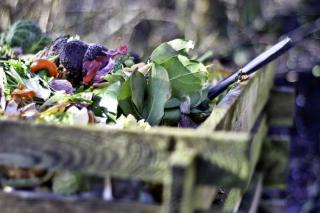 Plants require high amounts of three particular nutrients: nitrogen (N), phosphorus (P) and potassium (K). Nitrogen serves to grow stems and leaves; phosphorus enters into the making of beautiful flowers and abundant fruit formation. Potassium plays a role in the plant’s immune system, and helps it fend off attacks from insects, fungus and diseases. Aside from these three, there are a few more important trace elements that are needed in smaller amounts: iron, calcium, magnesium and sulfur.
Plants require high amounts of three particular nutrients: nitrogen (N), phosphorus (P) and potassium (K). Nitrogen serves to grow stems and leaves; phosphorus enters into the making of beautiful flowers and abundant fruit formation. Potassium plays a role in the plant’s immune system, and helps it fend off attacks from insects, fungus and diseases. Aside from these three, there are a few more important trace elements that are needed in smaller amounts: iron, calcium, magnesium and sulfur.
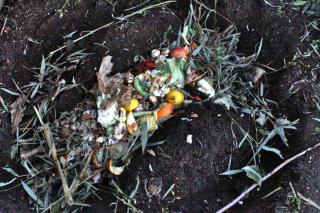 The focal point of organic matter in the garden! Compost is beneficial to plants since its produced from a variety of items. For instance, banana peels have lots of potassium, phosphorus and calcium. Coffee grounds generate nitrogen, as do other greens: lawn clippings, radish leaves, kitchen peels… If you combine all these scraps, you’ll get a power-packed combination for your plants!
The focal point of organic matter in the garden! Compost is beneficial to plants since its produced from a variety of items. For instance, banana peels have lots of potassium, phosphorus and calcium. Coffee grounds generate nitrogen, as do other greens: lawn clippings, radish leaves, kitchen peels… If you combine all these scraps, you’ll get a power-packed combination for your plants!
Those lucky to have a garden can set their own compost tower up, but if you’ve only got an apartment, you can still avail of designs specially thought up for balconies and even indoors. Two items you can place directly at the foot of your flowers without composting them are banana peels and coffee grounds. Coffee grounds are ideal for heath plants.
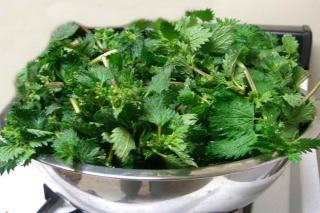 There’s a reason nettle tea is consistently used in gardens all over the world!It has massive amounts of nitrogen, and also doubles as a pest repellent against a great many pests – aphids included. It also triggers decay in composts, so you can use it as a compost activator. Excellent choice, therefore, to grow your plants, boost their immunity, deter pests and even repel them if already present.
There’s a reason nettle tea is consistently used in gardens all over the world!It has massive amounts of nitrogen, and also doubles as a pest repellent against a great many pests – aphids included. It also triggers decay in composts, so you can use it as a compost activator. Excellent choice, therefore, to grow your plants, boost their immunity, deter pests and even repel them if already present.
Preparing it only requires a few simple steps. Don your gloves, basket in hand, and off to fetch a bunch of nettles. Pick about 2 or 2½ pounds (1kg) of fresh nettle and chop it up a bit to make it easy to handle. Stuff it in a cloth pouch, or any other type of sieve-like container that will let water through but keep the nettle in place. Dunk the pouch into a barrel and fill it with 2 gallons (10 liters) of water. Weigh it down a bit with a rock or a handful of pebbles if it floats. Let the potion macerate, just stir it once a day with a long stick. As long as tiny bubbles keep rising to the surface, keep it up: bubbles mean the potion isn’t yet ready. Next is when the pouch is really useful: no need to filter! Pour the mixture in bottles or pails.
Every Spring, spray it all over the vegetable patch in a diluted form: 1 volume product to 9 volumes rainwater (10% concentration). With the same dilution ratio, use it to water your plants every fortnight, alternating with regular water. If you do this during the vegetation phase, your ornamental flowers will switch to high gear with this power-boost, especially those in containers and pots!
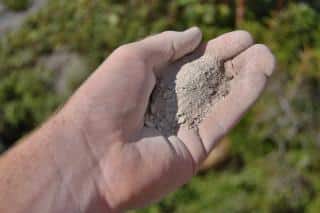 Is a fireplace part of your Winter routine? Love stoking that stove for cozy evenings around flaming logs? Perfect! Since it’s loaded with calcium, potash, silicon, magnesium and phosphorus, wood ash is an excellent complement to fermented nettle tea. One word of caution: it should be “pure” wood, without any paint nor varnish, and untreated against rot. After all, you don’t want to be spreading heavy metals and other toxic compounds on your soil, do you?
Is a fireplace part of your Winter routine? Love stoking that stove for cozy evenings around flaming logs? Perfect! Since it’s loaded with calcium, potash, silicon, magnesium and phosphorus, wood ash is an excellent complement to fermented nettle tea. One word of caution: it should be “pure” wood, without any paint nor varnish, and untreated against rot. After all, you don’t want to be spreading heavy metals and other toxic compounds on your soil, do you?
Simply wait for the ashes to cool down, and collect them. You can sieve them to remove partially burnt pieces of wood and lumps of coal. Store them in bags for use later, in Spring, though you can also spread them around during Summer and Autumn. Sprinkle a handful around the foot of your prized plants, and rake the soil around lightly to work it into the first inch or so (3 cm). Phosphorus is an element that supports blooming and fruit formation, so it’s ideal for orchard trees, ornamental flowers, and, of course, the vegetable patch.